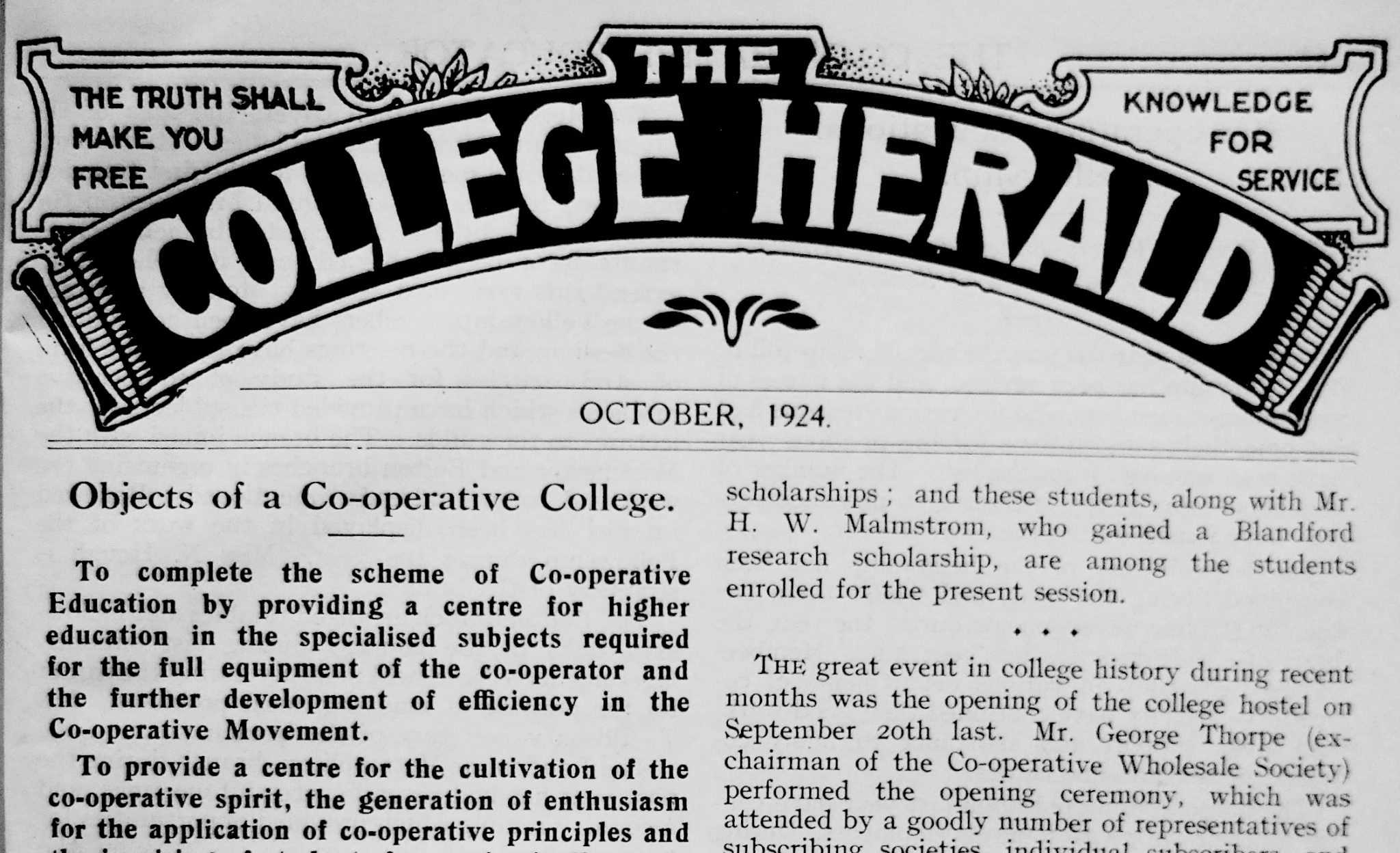As part of a regular monthly feature throughout the Co-operative College’s centenary year, archivist Sophie McCulloch explores interesting items from the past. This month she looks at how collaboration has always been a central feature of the co-operative movement and how the College itself was born out of a collaborative effort…
Collaboration has long been at the heart of the co-operatives. The earliest symbols of co-operative societies included beehives, the wheatsheaf and handshakes, all of which emphasised how working together was a core belief of this burgeoning movement.
This can also be said for the Co-operative College, which itself was founded as a result of the co-op movement coming together to provide education. When early discussions about a college were taking place, it was said there was a need for ‘harmony in industrial and international relationships’ and that those
who were keen to set up the College were ‘entering a period of fierce national and international co-operation’.
To be a success, the College needed collaboration across the co-operative movement, not only to support its setting up, but also to provide students to show there was a need for a different, co-operative way of learning. By the 1930s, the College had been established as a centre for co-operative learning both in the UK and internationally.

In 1936 a ten-year plan was introduced to set out the vision for co-operative education in the run-up to the centenary of the Rochdale Pioneers. The plan focused on collaboration and joint working, stating how important this was in furthering the objectives of the College. The plan set out to establish a joint committee for the promotion of technical education and called for a national scholarship fund – working with co-operative societies to provide employees
with opportunities to study at the College.
The plan also highlighted the need for collaboration between society committees as ‘employees have to be something more than grocers and drapers; they have to be co-operative citizens as well’. It concluded by saying that co-operators ‘join hands with those who are working in the sphere of co-operative trade in … creating those changes in our social system that have been summed up as social change’.
The College continued collaborating with partners to ensure education for co-operators into the 1950s and 1960s and began to become successful internationally. In 1951 it linked with the British Institute of Management to offer a course in management studies and two years later worked with the University of Nottingham to introduce a diploma in political, economic and social studies. This link continued into the 1960s and 70s with further success amongst an international audience.
Fast forward to the present day, and as the College celebrates its own centenary, education, collaboration and co-operation remain right at the heart of its mission to build a fairer world. With accredited courses, eLearning and a future co-operative University on the horizon, alongside a plethora of projects taking place across the UK and around the world, the future looks bright for an institution that stands as a reminder that great things happen when people co-operate.
- More information about the College and how you can get involved in its centenary year is available at: co-op.ac.uk/centenary
- More College Centenary Archive features here

